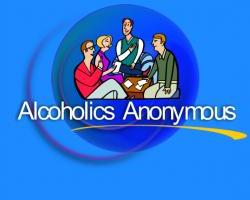The “13th Step” To Recovery
 We all know about the famous 12-step Alcoholics Anonymous program, but there is a 13th step that is rarely talked about – getting back into the normal routine of life.
We all know about the famous 12-step Alcoholics Anonymous program, but there is a 13th step that is rarely talked about – getting back into the normal routine of life.
According to a report on KOLN-TV in Lincoln, Nebraska, counselors say that 13th step is sometimes the hardest because society may not be welcoming to the recovering addict.
That is the problem Randy Hand is going through. He’s been sober for 13 months now, but his life is not back to normal because he has been unable to find a job.
“I think a lot of it is, I haven’t had any steady employment for a long time, for many years and I don’t have a real sound, solid work history,” Hand told the TV station.
Representatives at Cornhusker Place, the rehab center where Hand did his 12 steps, say sobriety can be threatened by something like the inability to get work.
“Because it has a lot to do with self-esteem,” Cornhusker Place Executive Director, Phil Tegeler said, “It has a lot to do with how you support yourself after you’ve graduated, how you are going to pay bills. Our clients are really goal orientated on how to become productive members of the community and if you don’t have a job that’s really tough to do.”
Tegeler said 50-60% of people who complete treatment eventually relapse. Hand said he refuses to be a statistic.
“There is a purpose for me. I feel like if I give up, if I don’t keep a positive attitude, then I can end up taking a very big turn for the worse, which I don’t want,” Hand said.